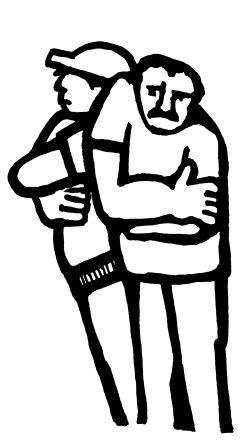What is Facilitated Dialogue?
Facilitated Dialogue is a conversation between two or more people involved in a conflict that is supported and structured by a trained, multiparital facilitator. Sometimes Facilitated Dialogues are structured using a “Circle Process” and as such may be referred to as a “Circle.”
Through Facilitated Dialogues (or Circles), all participants can:
• Share their thoughts, feelings, and experiences with one another in a confidential space
• Work toward mutual understanding of one another’s opinions and beliefs and experiences
• Identify areas of common ground and make decisions about how differences of opinion could be managed
• Explore the possibility of reaching mutually agreeable solutions. While agreements can occur, they are not central to the Facilitated Dialogue process.
Who’s involved?
• Participants – the people involved in a conflict.
• Facilitators – staff members from the Office of Student Conflict Resolution (“OSCR”).
How does it work?
In a typical Facilitated Dialogue:
• When all participants have agreed to participate in a Facilitated Dialogue, OSCR will arrange for a suitable day, time, and location for the dialogue to occur.
• The Dialogue begins with a brief review of participant expectations. The facilitator will also assist participants in establishing values that will guide the conversation.
• The participants shape the topics for discussion The facilitator helps ensure that the conversation stays productive, and that all participants uphold the values that were co-created as guidelines for the conversation.
• Sometimes a “circle” style of dialogue facilitation will be used. In circle processes – a structured process based on and rooted in indigenous practices – participants sit in a circle that structures the speaking order and determines who has the floor to talk. Circles, like most of OSCR’s ACR processes, begin by inviting all participants to share personal values that will help guide the conversation.
• Should more than one session be necessary, the facilitator can help schedule future meetings.
• If participants choose to create an agreement, the facilitator will assist with drafting one.
What are the benefits of using Facilitated Dialogue to resolve conflicts?
• Participants in a Facilitated Dialogue engage in an open‐ended exploration of the issues at hand, rather than remaining stuck in adversarial negotiating positions .
• Facilitators are multipartial, rather than impartial or neutral. This means they are equitably partial to everyone involved in the dialogue. Facilitators will act to ensure that all participants have the opportunity to share their thoughts, feelings, and experiences about the conflict as well as what could be done to make things better.
Works Cited
Wilgus, J. K., & Holmes, R. C. (2009). Facilitated dialogue: An overview and introduction for student conduct professionals. In J. M. Schrage & N. G. Giacomini (Eds.), Reframing campus conflict: Student conduct practice through a social justice lens (pp.112-125). Sterling, VA: Stylus Publishing, LLC.

